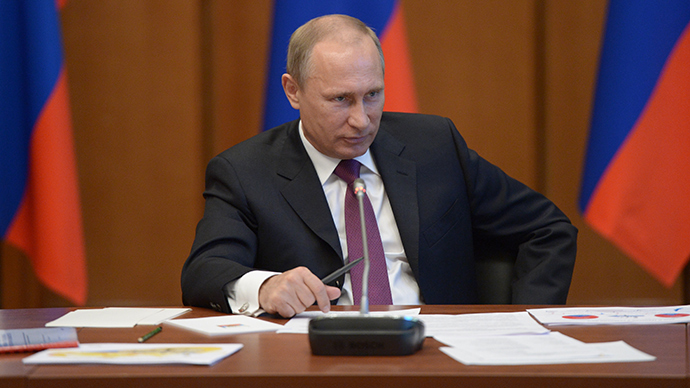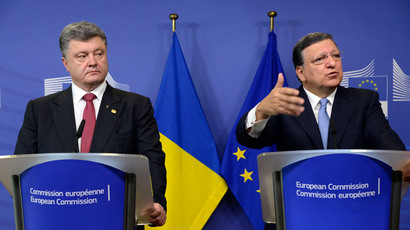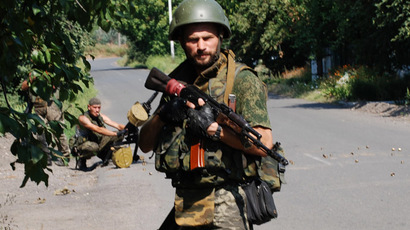Putin: I hope common sense prevails in ‘war of sanctions’

Russian President Vladimir Putin has said he hopes Russia and the west can return to normal cooperation from the current mutually damaging “war of sanctions,” as Europe ponders whether it should go further in penalizing Moscow.
“Concerning limitations in trade and economic activity, at the end those who are implementing this policy will suffer most of the harm,” Putin said, speaking at a meeting Monday devoted to supporting investment projects in Russia’s Far East.
“I hope that common sense prevails and we will work in a normal, modern way,” he added. “And that neither we nor our partners suffer losses from these mutual pinpricks.”
Earlier Monday, Russian Foreign Minister Sergey Lavrov said he believed it was still possible to return to “pragmatic cooperation” between Russia and the West.
“But for that, we need to abandon the futile policy of ultimatums, threats and sanctions,” Lavrov said.
READ MORE:Lavrov: US, EU must demand Kiev stop using heavy artillery, airstrikes against civilians
By imposing sanctions, the US and the EU are simply pushing
Russia toward shifting its cooperation priorities from the West
to the East, he added.
“It’s going to be bitter if Western countries themselves
choose the type of policy toward Russia which would see us
getting closer with the East at the expense of boosting
cooperation with Europe and our Western partners.”
The biggest economy in the East, China, opposes sanctions against Russia, and is ready to compensate for whatever Russia was deprived of by sanctions.
“We will do everything we can to supply you with all you need. Our cooperation is significantly expanding, also in the sphere of agriculture,” China's Vice Premier Zhang Gaoli told Vladimir Putin during their meeting Monday, just before the ceremony to launch construction of the first part of Gazprom’s new pipeline to deliver 4 trillion cubic meters of gas to China over 30 years.
URGENT: Putin, Chinese VP launch Russia-China gas mega-project - 4tln cm over 30 yrs http://t.co/88YjbryxUFpic.twitter.com/2xJ5Kp0SsD
— RT (@RT_com) September 1, 2014
The European Union has meanwhile been sharply divided over imposing additional sanctions against Russia.
At last week’s EU summit in Brussels, European leaders agreed to come up with a new set of sanctions against Russia, to be imposed in case the situation in Ukraine deteriorates.
German Chancellor Angela Merkel on Monday said the EU had to introduce new sanctions, even though she realized that those could "have an impact also for German companies."
Merkel argued "that the disadvantages which could affect us, were in no way as severe as the disadvantages of doing nothing” to counter Russia, which the chancellor believes is responsible for the crisis in Ukraine.
There have, however, been voices disapproving of the new sanctions and speaking out against penalizing Russia.
Slovakian PM Robert Fico described the idea of new sanctions as "meaningless and counterproductive," saying the impact of the previous round of tit-for-tat sanctions is still unknown.
He reserved the right “to veto sanctions harming national interests of Slovakia.”
European leaders have agreed to wait for another week before coming to a final decision on sanctions.














